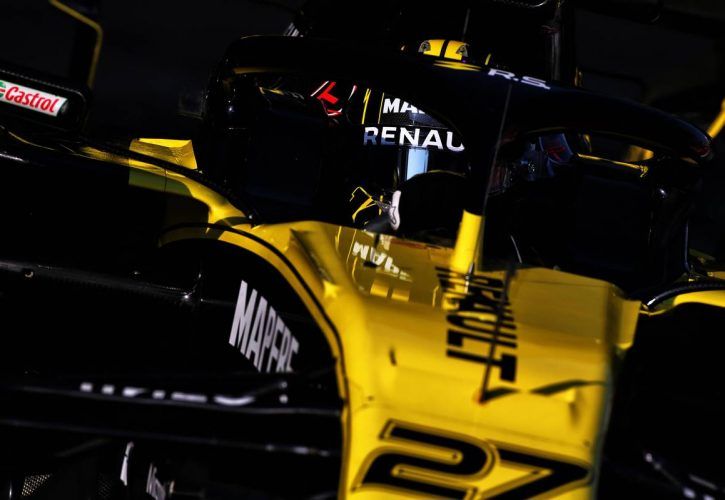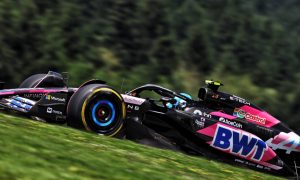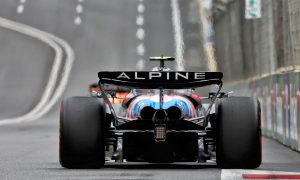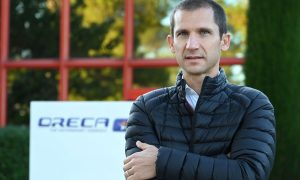
Nico Hulkenberg has admitted that it's difficult to compare this year's Renault power unit with its 2018 predecessor because of the impact of new aerodynamic rule changes.
An attempt to improve the on-track action by reducing the effect of 'dirty air' on pursuing cars has led to the FIA introducing new regulations for front and rear wings.
After four days of pre-season testing at the Circuit de Barcelona-Catalunya, Hulkenberg reported that the new specifications were having a clearly discernible effect on the speed and handling of the R.S.19.
Asked if he thought the new Renault engine was more powerful than last year's model, the German driver gave a qualified thumbs-up.
“I would say yes,” he told reporters after finishing fastest on Thursday. “But on the other hand, we have a lot more drag with a big rear wing, so obviously you have less of that sensation.
“It’s like pulling a parachute now across the straight," he commented. "You just see that massive rear wing in the mirrors. Obviously that has an impact on the feel of power.”
Despite the new regulations, Hulkenberg said that in other respects the new car didn't feel much different to last year's model.
"For me anyway it hasn’t changed that much," he confirmed. "It doesn’t feel a completely different animal. It's more of a feeling like coming home.
"We have the same steering wheel for example. The seating position is very similar. Perhaps I also wasn’t expecting a huge difference.
"It was difficult to kind of judge and anticipate how [the new aero regs] would impact the feeling, but for now it’s not so different.”
Initial analysis of the new specifications had suggested that this year's cars could be almost two seconds off the pace of their 2018 counterparts. But testing this week has suggested that there will be little drop in pace - and that the 2019 models could even end up going faster.
Hulkenberg's 1:17.393s after the first four days of testing was already very close to the 1:17.182s benchmark set by Sebastian Vettel last year at the end of the full eight days.
"The cars by the end of testing are going to be a chunk quicker than they were this time last year," commented Renault technical director Nick Chester.

"I think they're going to be probably a bit quicker than the end of '18 already, so by the end of '19 they are going to be quite quick!"
Another change this year is a raising of the car's minimum weight requirement. That allows drivers - especially taller ones like Hulkenberg - to avoid excessive dieting. But Hulkenberg says he doesn't plan to make any changes in this regard.
"I have like my fighting weight, you know, my happy place," he said, explaining that his target weight would remain 78kg as it had been throughout his career.
"That’s where I want to be and where I need to be," he added. "And more or less where I can be, not much less."
But he agreed that the smaller, lighter drivers would no longer have such an advantage this year as a result of the rule change.
"Now they don't have [that advantage] anymore, so it should be just a bit more fair," he said. "But I don't think that’s really a measurable advantage for me.”
Gallery: The beautiful wives and girlfriends of F1 drivers
Keep up to date with all the F1 news via Facebook and Twitter






